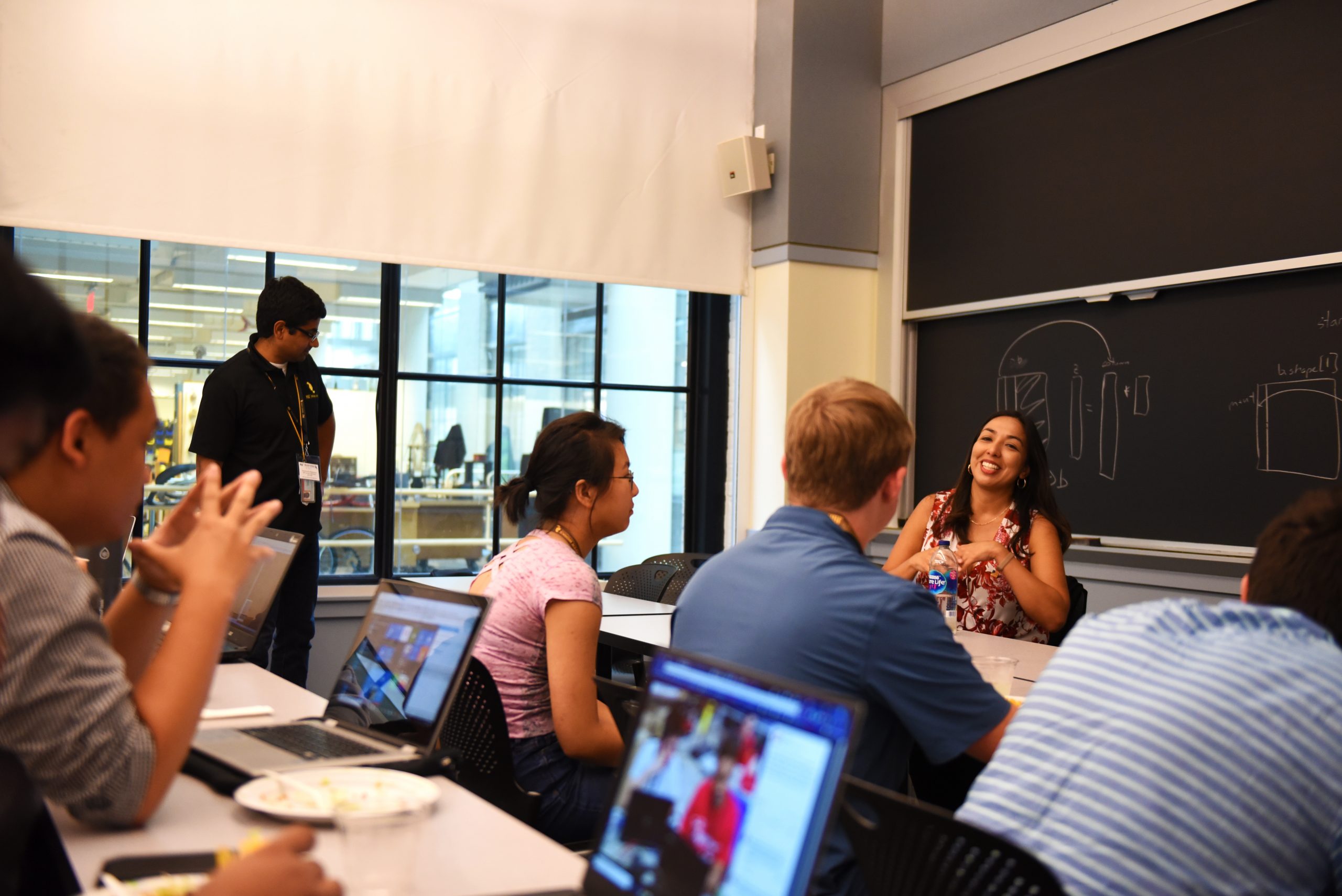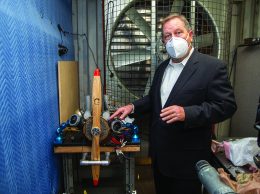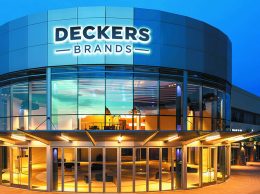Raytheon gears up for Goleta hiring spree

A few months into its new life as Raytheon Technologies, one of the region’s top aerospace and defense manufacturers is on a hiring spree in Goleta.
Formed by the April merger of United Technologies and Raytheon, Raytheon Technologies counts as one of its business segments Raytheon Intelligence & Space. That subsidiary employs around 1,400 people in Southern California and is looking to fill some 400 new positions among its two offices in Goleta and El Segundo.
The openings includes hardware engineers, systems designers and cybersecurity specialists, said Annabel Flores, vice president of electronic warfare systems.
“We’re looking for a lot of systems engineers, a lot of strong technical background folks that really can think in a system of systems type of perspective,” she said. “Especially in today’s environment where we provide network capability to our systems, our systems are able to talk to each other and connect … so we’ve got to protect that data.”
Raytheon’s merger with United Technologies closed April 3, combining the two companies into a $95 billion operation that catapulted it past Airbus to make it the No. 2 aerospace and defense supplier nationally.
Shares have hovered around $62 since the deal closed. The company reported around $25.4 billion in sales in the first half of 2020, up 14 percent from the same period the prior year, but a net loss of $3.9 billion.
As its focus increasingly turns to space operations, cybersecurity has emerged alongside engineering talent at the top of its wish list. And as it looks to streamline its operations, software expertise in areas like digital modeling is also in high demand.
“The more we can do in the computer and less on paper, the more efficient we are, the more efficiently we can engage our suppliers,” Flores said. “We’re really looking for those types of expertise to help us mature our progress in terms of engineering disciplines.”
The company works closely with colleges and universities, and its recruitment team has “had to get a whole lot more creative” with virtual outreach strategies like online career fairs, she said.
The South Coast location remains a strong sell for new employees, she said. The company shifted many of its workers to a virtual setting at the onset of the pandemic, but hardware and engineering roles still require a heavy onsite presence.
“Goleta’s always been an area where you have to go above and beyond,” Flores said. “It really is this great environment to have a lot of career growth.”
Aerospace firms nationally have been among the most deeply impacted by the pandemic, reversing early expectations for a rebound in 2020 after a decline in 2019, research and consulting firm Deloitte said in a mid-year update on the sector. Defense spending, on the other hand, has bolstered many firms that operate in both the commercial and military fields.
“To ensure minimal business disruption amid the pandemic, the U.S. Department of Defense is using several measures, such as classifying the sector as a critical infrastructure sector and enhancing liquidity for defense contractors,” Deloitte said.
Raytheon has had some declines in its aerospace divisions elsewhere in the U.S., Flores said, but “defense in general has been growing over the last few years, so that means we’ve been successful at winning new business and we need more support to run that.”
Declining business for airline suppliers could prove fruitful for the defense sector, providing a pool of skilled workers that have been idled since the pandemic gutted the travel industry, in what is usually a highly competitive labor field, said Peter Rupert, director of the UC Santa Barbara Economic Forecast Project.
While regional firms are all too aware of the sticker shock felt by many that relocate to the Tri-Counties, the region remains a strong draw among highly technical companies with operations in Los Angeles and the Bay Area, Rupert said. That’s evidenced by expansions among big names like Amazon and Google along the South Coast.
The geographic focus for Raytheon is somewhat surprising, he added, as many companies take advantage of a work-from-home environment to expand their recruitment efforts outside the usual range of their regional offices.
Virtual work may have a shorter shelf life than expected, though, Rupert said.
“The view that everyone is going to be working from home is just not true,” he said. “I think there’s something to be said about being local, being in a facility. That’s why Silicon Valley started, because a bunch of people who had really good ideas met in coffee shops.” In a more formal video conference setting, “a lot of that spontaneous behavior just won’t be there.”
For Raytheon, the pandemic “is really opening up opportunities on where work gets done,” Flores said. But it is being cautious in its approach, balancing traditional wisdom of co-locating teams with new efficiencies offered by a virtual environment.
“In this case, it helps to be methodical about our approach,” she said.












